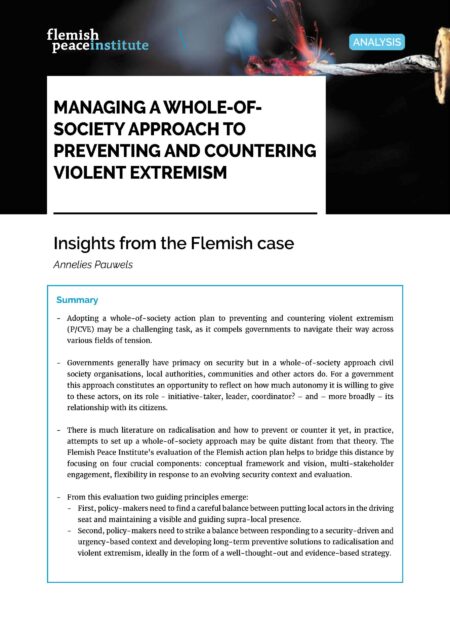Managing a whole-of society approach to preventing and countering violent extremism – Insights from the Flemish case
Publication date: 04/05/2022
Adopting a whole-of-society action plan to preventing and countering violent extremism
(P/CVE) may be a challenging task, as it compels governments to navigate their way across
various fields of tension.
In her analysis (that can be downloaded in full here) , our researcher Annelies Pauwels elaborates on the following insights from the Flemish case:
– Governments generally have primacy on security but in a whole-of-society approach civil society organisations, local authorities, communities and other actors do. For a government this approach constitutes an opportunity to reflect on how much autonomy it is willing to give to these actors, on its role – initiative-taker, leader, coordinator? – and – more broadly – its relationship with its citizens.
– There is much literature on radicalisation and how to prevent or counter it yet, in practice, attempts to set up a whole-of-society approach may be quite distant from that theory. The Flemish Peace Institute’s evaluation of the Flemish action plan helps to bridge this distance by focusing on four crucial components: conceptual framework and vision, multi-stakeholder engagement, flexibility in response to an evolving security context and evaluation.
– From this evaluation two guiding principles emerge:
1. First, policy-makers need to find a careful balance between putting local actors in the driving seat and maintaining a visible and guiding supra-local presence.
2. Second, policy-makers need to strike a balance between responding to a security-driven and urgency-based context and developing long-term preventive solutions to radicalisation and violent extremism, ideally in the form of a well-thought-out and evidence-based strategy.
 Download PDF
Download PDF

